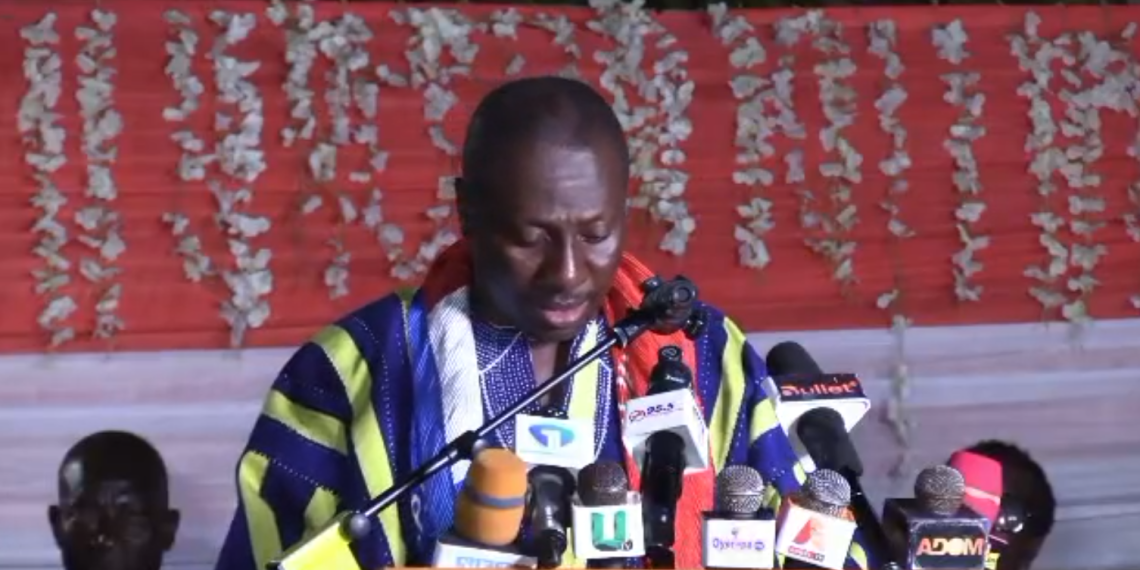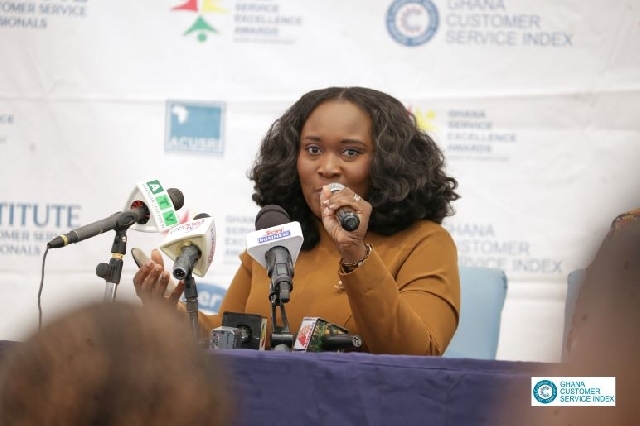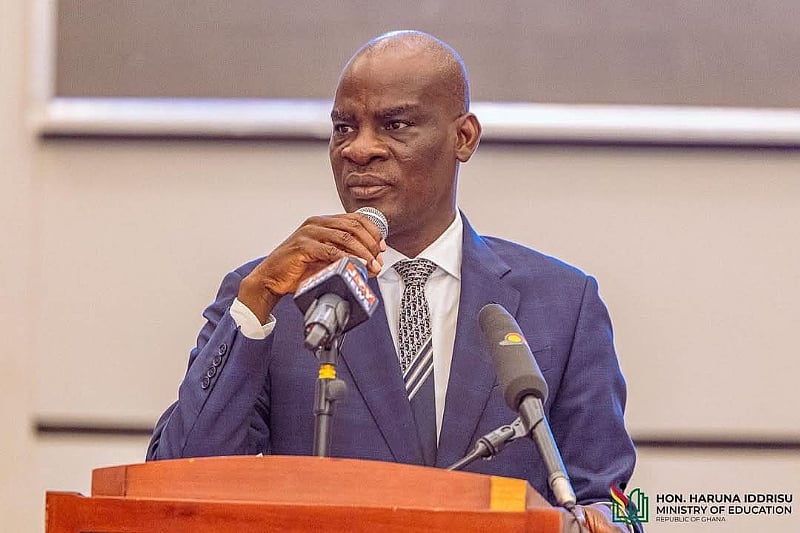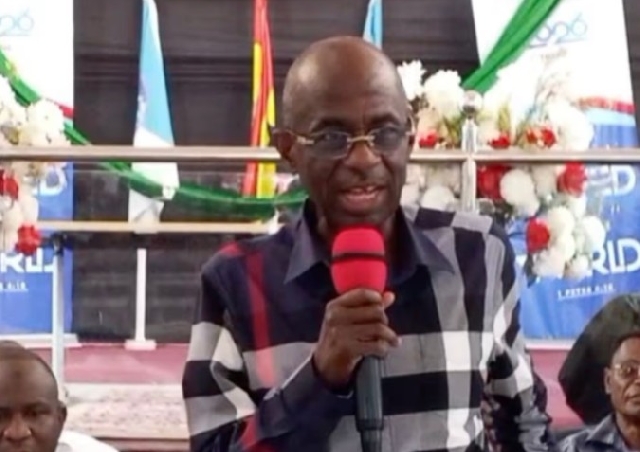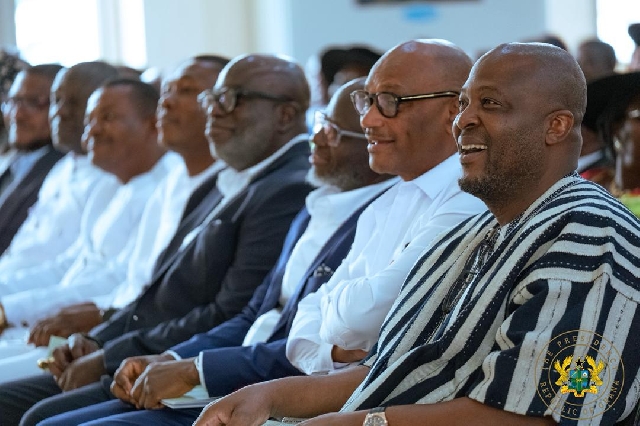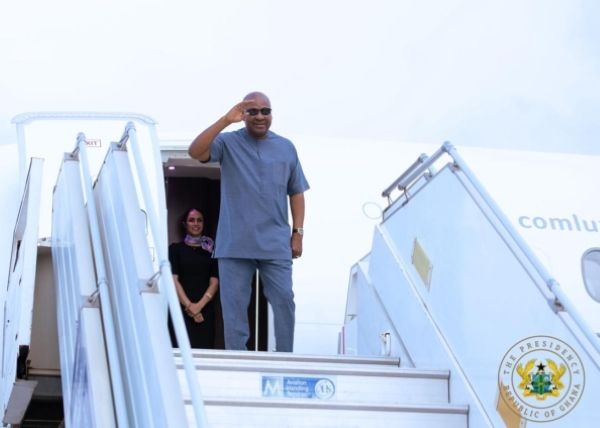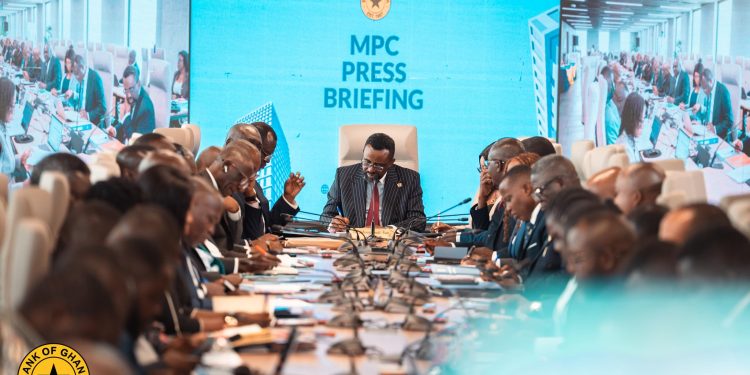By Prof. Robert Baba Kuganab-Lem Introduction The government of Ghana have variously contemplated on how best to finance health care and all have tried to develop a system of financing that will reduce the financial limitations that cost of health care imposed on citizen’s access to health particularly the poor and vulnerable. Before independence access to health care was narrowed to expatriates and the few Ghanaians working with the public service. The government of Osygyefo Dr. Kwame Nkrumah established the Ghana Health Service. The object of the service was to open health care to all Ghanaians. The service included principles of health insurance and health care was free at the point of use. Prime Minister Abrefa Busia’s government in 1971 started charging for hospital services through the hospital fee act of 1971. The view of the government then was that the hospital fees will reduce unnecessary and health excessive use of health facilities and also raise some revenue for the facilities. This was not full cost recovery. Government still had to hugely subsidies health care. In the 1980s it became extremely difficult for government to fund health care. Government therefore introduced the Hospital Fees Regulation of 1985. This ushered in the principle of cost recovery. For the first time Ghanaians had to pay the cost of health care at the point of use. This fee regulation it was reported resulted in a drop in attendance at health facilities particularly in rural areas. The law was amended in 1990 and the law allowed health facilities to retain 100% of the revenue and also keep a revolving fund for drugs. It is this amendment that ushered in the term CASH and CARRY. In local parlance it connoted no money, no treatment. It was a very unpopular term. Several pieces of research point to a fact that some of the advantages of user fees were not materialised. It rather created problems of equity and for most of the population services were no longer affordable. Motivation for Health Insurance The Hospital Fees Regulation of 1985 (cost recovery) was largely resulting from structural adjustment programmes introduced by the World Bank and the IMF to correct balance of payment deficits. The act distorted the health seeking behaviour patterns of Ghanaians. The system placed a heavy financial burden on the poor and led to inequities in access to healthcare. But government had no option than to agree to cost recovery in an effort to stabilise the economy of the country, which had taken a nosedive. In other to mitigate the widening gap of access to health care, the government introduced an exemption policy in 1992. The essence of the policy was to exclude the poor and vulnerable from paying user fees. There were reports that that the exemption directive was hardly used. Service providers found the exemption policy cumbersome and laborious to implement. The inability of the exemption policy to work points to a known fact that all poor relief is given grudgingly and reluctantly by service providers. The regressive nature of the cash and carry policy, coupled with the lackadaisical implementation of the exemption policy resulted in diminishing access of the population to health care. This agitated government and non-governmental organisations considerably and thus the beginning of the exploration of a more equitable system for guaranteeing financial access to health care. The concept of health insurance in Ghana predates the establishment of the National Health Insurance Scheme (NHIS) and has its roots in community-based health insurance initiatives. Various community-based health insurance schemes (also known as mutual health insurance schemes) existed in Ghana, particularly in rural areas. These were small, localized efforts where community members pooled resources to pay for healthcare when needed. The Catholic Church played a very critical role in the establishment of health insurance in Ghana. The first and most successful scheme was the Nkoranza Community Health Insurance Scheme based at St Michael hospital in Nkoranza. The Catholics established through the support of GTZ at Damongo the Damongo Community Health insurance scheme. These schemes which started in the early 1990s became a model for community-based insurance schemes in other parts of the country. NDC and Health Insurance Agenda President Rawlings in 1995 in order to mitigate the regressive nature of the cash and carry system introduced the ideal of health insurance scheme by piloting a scheme at Dodowa. He then commissioned the Ministry of Health to undertake a feasibility study on community health insurance. The main thrust of the commissioned feasibility study was to provide policy-makers with relevant data on the demand for and feasibility of health insurance schemes. It was also to assist to formulate a health insurance policy that would suit the largely rural population within the Ghana socio-economic context. The government through the MoH received from a private consultancy group an explicit proposal in late 1995. This consultancy produced a comprehensive report on the feasibility for the establishment of a National Health Insurance in Ghana. The consultancy proposed strongly the establishment of a centralised national health insurance company for all contributors to the SSNIT and registered cocoa farmers. It also recommended pilot rural based community-financed schemes for the non-formal sector. The then government got SSNIT to establish a Subsidiary Company charged with the responsibility of piloting insurance schemes in the Eastern Region. In its 2000 manifesto the NDC stated that Health Insurance will be a major strategy for mobilising additional resources and for ensuring financial access to health care in time of need. They highlighted that the pilot work already carried out will form the basis for a mix of insurance schemes, both public and private, national and local to cater for salaried employees, the self-employed as well as both urban and rural communities. They further stated in the manifesto that one of the most effective ways of keeping the cost of health care to a minimum is through a Health Insurance Scheme and it is for this reason that the NDC Government conducted in-depth studies and pilot projects to facilitate
Dr. Kuganab-Lam, defeated Binduri NDC Parliamentary Candidate claims there are lot of evil and witchcraft in the Binduri NDC party
The defected and angry Binduri NDC Parliamentary candidate at the just-ended internal primaries, Dr. Robert Baba Kuganab-Lem has described his party members as evil and vicious. Dr. Kuganab-Lem made the pronouncement during an engagement on Dreamz Fm a local radio station operating in the regional capital also monitored by Apexnewsgh.com. Even though Dr. Kuganab-Lem claimed, his opponent Mr. Mahmoud stands a better chance of winning the seat for the NDC, he also believes those around the Parliamentary Candidate elect are treacherous people who do not mean well for the party. “I have confidence in him. He is the best candidate because he has emerged victorious. What I’m honestly deflated about is the fact that he was supported by treacherous people, people who sold NDC in the past and are likely to sell NDC in the present,” he told the host. “People voted for him because they hated me, that was the reason” “It is difficult to know who is a party member now in Binduri, very difficult. Because if you are a party member, you don’t look at destruction, you look at construction. So, there are few people who are wolves in sheep’s clothes, they don’t like me, they don’t like the progress of the party and they don’t like even the fellow they had voted for. So, it is a very difficult maze that we have to traverse. Binduri is a conflicted constituency” As he was continuously using words like evil, and witchcraft to describe happenings in the Binduri NDC party. The defeated Dr. Kuganab-Lem also believes Mr. Mahmoud wasn’t the favorite candidate for the in Binduri, but stresses that, they did everything including seeking support from the governing New Patriotic Party (NPP) to ensure he emerged victorious “There are a lot of evil things that people did, and I saw them with my naked eyes, I wouldn’t want to mention it but, there is a lot of witchcraft in this Binduri issue, a lot of witchcraft, bad practices, destructive. Let me tell you, atimes when we read the bible and they tell us how Jesus was betrayed and how people are evil, people he was eating with, Judas had to kiss him, you think this is a story, the evil that leads them, is still living with us”. He said The angry and defeated Dr. Kuganab-Lam also cautioned the party’s candidate to be careful of people around him stressing they could also plot his defeat in the General Elections in 2024. Dr. Kuganab-Lem was prevented from going back to Parliament in 2020 by the NPP’s Binduri candidate Abdulai Abanga. A defeat that shocked the party hierarchy. Unfortunately, his dream of going back to parliament after the 2024 general election has become another added history after Issifu Mahmoud a resigned police officer and legal practitioner gave him a run for his money. Apexnewsgh.com/Ghana Please contact Apexnewsgh.com on email apexnewsgh@gmail.com for your credible news publications. Contact: 0256336062
NDC Primaries: See how your constituency looks like
A total number of Thousand Four and Ninty Two (1492) polling stations and Forty Nine (49) aspirants will be participating in the Parliamentary and Presidential primaries in the Upper East Region come Saturday, May 13. In the Upper East Region, it is clear some incumbent MPs are currently struggling to regain their mandates in the region as far as representing their constituents and constituencies in Parliament is concerned. The battle is becoming too tough few of these Members of Parliament. In fact, few of these incumbent MPs did not see this tough battle coming. Some of them were relaxed until Monday, May 8, 2023, when they started seeing massive competition from their opponents. Some of these MPs were strategic to remove money for their campaigns, especially in the area of lobbying delegates, some of these MPs also claimed their incumbency will do the magic for them but, happenings on the campaign ground have shown their mentality deceived them big time. Navrongo is one the place easily predicted a smooth win for the Incumbent, But as we speak, the incumbent is not finding it easy due to the ongoing Kessana and Nankana tribal campaign which seriously penetrating in favor of Mr. Simon. But, however, Mr. STC is pushing we are seeing him through because of the power of incumbency. Binduri is another interesting area to watch out for, the retired police who doubles as a lawyer, is showing some level of seriousness as far as capturing the ticket is concerned. The former MP for the area Dr. Robert who lost the seat to the NPP is equally fighting so hard. We are seeing him going through the contest. But it won’t be an easy journey or if you like a walk away for him. Chana/Paga is one of the areas, the MP Dalou is facing a massive contest, The MP himself is aware the battle is too tough for him at this stage. Alamzy is heard across all the branches. But the only challenges we observed that might go against Alamzy is also the tribal campaign against him as some claimed he is a stranger and also contesting from the same zone with Lawyer. They might share their votes and that may give the incumbent the opportunity. Garu is one of the areas the incumbent MP is not currently at peace especially with the caliber of personalities contesting him, especially with the name Dr. Thomas Anaba being on top. From what we have gathered already, the incumbent might not return back to represent the people of Garu. The majority believes he has served for 12 years which means 4 years as DCE and 8 years Member of Parliament and according to them, is time to give another person the opportunity to serve. Nabdam is a very strange area to watch out for, the incumbent Dr. Kurt Nawaane is not finding it easy, his contender Lamtiig Apanga has made the competition in the constituency an interesting one. In the history of the NDC internal party contest, this particular one has seen massive change. In the past, Dr. Mark Kurt Nawaane the incumbent, has been contested twice by Dr. Vida a University lecturer but has not witnessed such a tough contest as witnessed even in this current primaries. In the Nabdam Constituency, tribal campaigns cannot be ruled out. Nabdam constituency is having a total number of 50 polling stations and out of the 50 polling stations, Lawyer Apanga is said to be having the upper hand with 31 polling stations, only leaving just 19 for the incumbent MP. Even though, Dr. Nawaane has done his best in terms of development in the constituency example the Police post he constructed in Pelengu, the maths set he always donates to the BECE students, some boreholes he has constructed and schools fees paid for some students in the area. Lawyer Apanga, has also provided some development to the Nabdam people, for example, the 6 boreholes, COVID-19 donations and etc. However, he is also loved by his people. We are seeing a tough contest in the Nabdam constituency, the chances of both candidates is tiny. Meaning whoever that will emerge victories will win by just a small margin. Nabdam is an interesting place. Talensi, The number of candidates contesting for just one seat in the Talensi Constituency is making it difficult for us looking at their individual qualities. However, ‘if’ the zone factor plays as we normally witnessed in almost all the Talensi political elections, then the Talensi Constituency is likely to elect the youngest candidate amongst the eight in the person of Solomon TTB. This is because he is the only representative coming from the Eastern Zone which is perceived to have the largest votes. Zinekena Solomon TTB, Edward Awunore, John Yaro, Mahama Dung Daniel, Nathaniel Daraan Kugre. Pusiga: This is another interesting area to watch keenly. We observed that delegates were not happy with the incumbent MP. The MP has been in power for almost 12 years and yet she couldn’t provide the party with a car, which has caused the party always going to NPP to borrow their party car ‘No empowerment for party members. She is a ‘boss’ not a ‘leader’ They also claimed she is now trying to use material things to buy their conscience. Note: No one can underrate the power of incumbency at the eve night. From the views we gathered from those who matter in the Pusiga Constituency, Mr. George B. Azungah is likely to lead NDC to the Promised Land as the Pusiga Parliamentary Candidate ahead of the 2024. Bongo: The pressure in Bongo is massive. They are three aspiring candidates Lawyer Charles Dua, Edward Bawa, and Prof. Avea Nsoh. From our observation, the competition is between the incumbent and the astute Lawyer Dua. Our observation could confirm that the incumbent Edward Bawa is not an easy contest at all. Lawyer Dua has shown massive seriousness ahead of the primaries. He is currently giving the incumbent a
The NDC’ Dwindling Parliamentary votes in Binduri & the way forward
By Sule Salifu Azaa-Namal There have been several complains from other party faithful in Binduri regarding the NDC’ dwindling chances of winning back the parliamentary seat from the NPP mainly due to the fact that some faithful party members have been suspended based on very suspicious and unconfirmed allegations leveled against them mainly by their opponents. I have since been wondering and having sleepless nights as to why the electoral fortunes of our great party NDC is on the decline while that of the NPP is on the rise? I believe others who wear the same glasses with me are equally worried about this developing trend. This canker is eating deep into the fibers of our dear party and if nothing is done swiftly, it will lead us into a ditch in the near future as a party. It is time for everybody who sees this as a threat to us and also have the party at heart to put their hands on deck and let us find the causes and ways to remedy this canker. The table below compares our parliamentary elections results over the years for your study. YEAR 1996 2000 2004 2008 2012 2016 2020 NDC 10,704 12,174 9,797 8357 16,088 15,191 14,562 NPP 2,654 2,937 6,216 9,103 7,543 9,577 15,016 It is clear on the table that our opponents had their votes reduced only in 2012 as compared to that of ours. In 2020, we dropped by 12.7% and they gained by 11.1%. We had our votes increased in 2000 and 2012. I see this trend as a worry if others don’t see same. I have been asking myself these questions without getting assured answers but speculations. Where are we getting it wrong? Could it be from any of these or all? DISUNITY IN THE PARTY AFTER EVERY CONSTITUENCY EXECUTIVES ELECTIONS AND PARLIAMENTARY PRIMARIES: My analysis of this issues though without figures to back this claim shows that Usually attempts to unite the party after internal elections have not been “diligently handled” as captured in the Upper East disciplinary committee that suspended some party members. More especially when the winner lacks the needed political maturity, diplomacy and political language. Usually the winners want to go on and win without involving the losers, for reasons best known to them. They usually presume the task ahead will be an easy one and so they can win alone to even spite their opponents some more. They will only come back to their sense after a defeat and then start to blame the people they didn’t see relevant to bring on board. A case in point is where prior to the 2020 parliamentary elections Mr. Ben Ndego told the parliamentary candidate as captured in page 78 of the committee report that “the intransigence from him will cost his political career and when that happens, he should not blame anyone for his afflictions”. Indeed, they only come back to their senses only after a loss. We have to sit down as a party after every internal contest and see how to bring back unity and bring everyone on board for effective party campaign and victory. Everyone in the party is very important for our victory. POOR CAMPAIGN MESSAGES AND UNFULFILLMENT OF SOME PROMISES: I see this as one of the causes in reduction in our votes in every election. Comparing our campaign message and that of the NPP in the 2020 election is a clear indication of what am alluding to. What was our campaign message to match that of their borehole drilling machine for the constituents? What of his campaign of supporting farmers especially those doing dry season farming? In case where we even promise during campaigns, the question Is, do we always fulfill them when given the opportunity? Your response to this question may not be far from mine. People are becoming more discerning nowadays and we have to move away from using issues like Bawku conflict or certificates of our candidate as our main campaign message. What people want to hear now in politics is butter and bread issues and nothing less. Let us always have a team that will sit with the parliamentary candidate, plan and come out with an enticing campaign message. And with this, I believe we will win back the interest of the electorates. NEGLECT OF PARTY FOOT SOLDIERS: This is another area of worry we have to look at as a party. It is always common to hear our leaders both at national and constituency level admonishing people to do sacrificial work to help the party capture power. After agreeing with their plea and doing the needful, the party don’t always think of these foot soldiers again. What they think of is themselves and their cronies. How many of our foot soldiers had recruitment into our security services since the 1996 up to date by our party? How many youths of our party has been given scholarship by our party to further their education? How many youth groups have been given contract by our party? Are we saying that there are no recruitments, scholarships, awarding of contracts etc. in Ghana when NDC is in power? The sad aspect of it all is our leaders asking for qualifications before employing party boys into the youth employment program when our opponents don’t do that. A friend in NPP who has not even completed JHS has been employed into the youth employment program as a police officers. Why are we so wicked to ourselves? The earlier we think of how to handle our foot soldiers, the better it will be for us all. LACK OF SOCIAL INTERVENTIONS ON THE SIDE OF OUR MPS AND OTHER GOVERNMENT APPOINTEES: It is evident that our MPs and other government appointees of our constituency do less or no social interventions for our constituents. We are all seeing what our opponents are doing. Fertilizer for farmers, loans for people before elections and even after elections. Giving of GHS1000.00 to each
DCE prevented me from using my Common Fund for development –Former MP laments
Former Member of Parliament for Binduri Robert Baba Kuganab-Lem has said, one of the reasons why he couldn’t achieve most of his developmental projects in his constituency was a result of the DCE’s no approval of his MP’s Common Fund. Apexnewsgh.com report Dr. Kuganab-lem made the interesting revelation on Dreamz FM Bolgatanga monitored by Apexnewsgh.com He said : “I was not able to use my Common Fund because the DCE refused to approve them and immediately I left, they were using that money and I couldn’t get it because I was out” He explained “So, there was a deliberate attempt to strangulate me and not allow me to perform. That is Ghana and that’s our mentality that a statutory fund allocated to the MP, the MP’s project will not be approved because he is in opposition”. However, despite all the hindrance by the District Chief Executive, He was able to get Japan Cooperation to come to Binduri to do about 27 mechanized boreholes for clinics. The former NDC MP served only 4 years in Parliament and was voted out by his people in replacement with the current Deputy Minister for Ministry of Works and Housing Abdulai Abanga. Binduri is the only seat the governing New Patriotic Party (NPP) is occupying in the region. Source: Apexnewsgh.com/Ghana/Ngamegbulam Chidozie
JUST IN: Statue of more resemblance of late President Mills has emerged
The former Member of Parliament for the Binduri Constituency Dr. Robert Baba Kuganab-Lem has said a bolga based artist has in his possession a statue of the late president Mills which has more resemblance to the late President than what was seen at the Asomdwee Park. Apexnewsgh.com report According to the former MP, the nice-looking burst was built in Bolgatanga way back in 2016 in honor of the late former President Mills after some young men in Bolgatanga came together and decided that, following his decent and exemplary life he lived there was the need to form an Atta-Mills Virtues Club to look critically at his life and then establish critical values he stood for and let these guide their daily lives and that these values will also permeate this generation and generations to come. The John Evans Atta-Mills 10th commemorative lecture was held in memory of the former President as part of activities to mark the 10th anniversary of his death. The organized J.E.A. Mills Memorial Heritage lecture was on the theme: “The man John Evans Atta Mills – Ten years on”. However, the 10 years of remembrance of the late former President did not come without any controversy surrounding it.As Mr. Koku Ayidoho former deputy national secretary of the NDC at a time was busy refurbishing the Asomdwee Park in honor of his former boss, it appears the family of former President Mills has no official knowledge about Koku Ayidoho’s plans for the anniversary. The head of former President Mills’s family believes Mr. Ayidoho only used the so-called refurbishing to promote themselves and their institute and to promote their paymasters. Another aspect that has generated controversy, was the burst built by Mr. Koku Ayindoho and the government in honor of the late President Mills. The statue has received a lot of criticism from some Ghanaians because the name of the late President Mills was missing from it. Meanwhile, just a few days after the 10 years anniversary of the passing of the former late President Mills, The former Binduri MP Dr. Robert Baba Kuganab-Lem has challenged the quality of the statue produced by Mr. Ayidoho and the government in honor of his late boss. Dr. Kuganab-Lem holds the view that the statue is not a true representation of the former president and should be replaced with the burst in bolga. Source: Apexnewsgh.com




